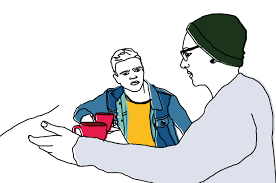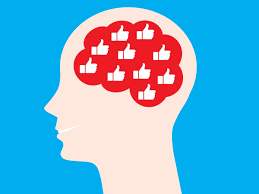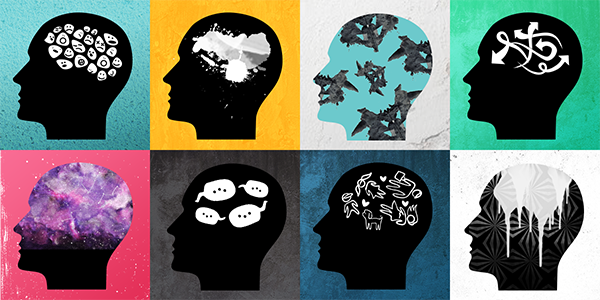Therapy is becoming an increasingly popular way to resolve a variety of issues. People are beginning to understand the benefits that different types of therapies can offer and are more willing to give them a try.
In this blog post, we will discuss what therapy is and the different types of therapies available. We will also talk about why you might consider therapy and how to go about finding the right therapist for you.
Contents
Understanding Therapy

The word “therapy” comes from the Greek word meaning “cure.” In its simplest form, therapy is a way to help people feel better. Therapy can help treat a wide variety of mental and physical health issues.
Issues They Help Resolve
Therapy can be helpful for people who are struggling with mental health issues, such as depression, anxiety, or post-traumatic stress disorder. Therapy can also be helpful for people who are dealing with physical health issues, such as chronic pain or cancer.
Why Consider It
There are many reasons why you might consider therapy. If you’re struggling with mental or physical health issues, therapy can help you understand and manage your symptoms. Therapy can also help you cope with difficult life events, such as divorce or the death of a loved one.
Listing Types of Therapies

There are many different types of therapies available. Some common types of therapy include:
- Talk therapy: Talk therapy is the most common type of therapy. In talk therapy, you meet with a therapist to discuss your thoughts and feelings. Talk therapy can help treat a wide variety of mental health issues.
- Behavioral therapy: Behavioral therapy is a type of talk therapy that focuses on changing negative behaviors. In behavioral therapy, you will work with a therapist to identify and change negative patterns of behavior.
- Fun therapies: Fun therapies, such as art therapy or dance therapy, use creative activities to help you express yourself and explore your thoughts and feelings.
- Somatic therapy: Somatic therapy is a type of therapy that focuses on the mind-body connection. Somatic therapies can include massage, yoga, or acupuncture.
- Brain therapies: Brain therapies, such as transcranial magnetic stimulation (TMS) or electroconvulsive therapy (ECT), can be used to treat mental health issues that have not responded to other treatments.
Talk Therapies Examples
- Interpersonal therapy: Interpersonal therapy (IPT) is a type of talk therapy that focuses on your relationships with others. It can be used to treat depression and other mental health issues.
- Psychodynamic therapy: Psychodynamic therapy is a type of psychotherapy that focuses on your early childhood experiences and how they may be affecting your current life.
- Dialectical behavioral therapy: Dialectical behavioral therapy (DBT) is a type of psychotherapy that combines elements of CBT and IPT. DBT can be used to treat mental health issues, such as depression, anxiety, and post-traumatic stress disorder.
- Cognitive-behavioral therapy: Cognitive-behavioral therapy (CBT) is a type of talk therapy that focuses on changing negative thought patterns. CBT can be used to treat a wide variety of mental health issues, including depression and anxiety.
Behavior Therapies Examples
- Exposure therapy: Exposure therapy is a type of behavioral therapy that involves facing your fears. Exposure therapy can be used to treat a wide variety of mental health issues, including phobias, anxiety, and post-traumatic stress disorder.
- Aversion therapy: Aversion therapy is a type of behavioral therapy that uses positive and negative reinforcement to change your behavior. Aversion therapy can be used to treat a wide variety of issues, such as addiction and eating disorders.
- Behavior modification: Behavior modification is a type of behavioral therapy that focuses on changing negative behaviors. Behavior modification can be used to treat a wide variety of mental health issues, including addiction and eating disorders.
Fun Therapies Examples
- Art therapy: Art therapy is a type of therapy that uses art as a way to express your thoughts and feelings. Art therapy can be used to treat a wide variety of mental health issues.
- Dance therapy: Dance therapy is a type of therapy that uses movement as a way to express your thoughts and feelings. Dance therapy can be used to treat a wide variety of mental health issues.
- Music therapy: Music therapy is a type of therapy that uses music as a way to relax and rejuvenate the mind. Music therapy can be used to treat a wide variety of mental and physical health issues.
Somatic Therapies Examples
- Massage therapy: Massage therapy is a type of somatic therapy that involves using touch to promote relaxation and healing. Massage therapy can help treat a wide variety of physical and mental health issues.
- Yoga: Yoga is a type of somatic therapy that involves physical postures, breathing exercises, and meditation. Yoga can help treat a wide variety of physical and mental health issues.
- Acupuncture: Acupuncture is a type of somatic therapy that involves inserting thin needles into the skin. Acupuncture can help to treat a wide variety of physical and mental health issues.
Brain Therapies Examples
- Transcranial magnetic stimulation (TMS): TMS is a type of brain therapy that uses magnetic fields to stimulate the brain. TMS can help treat depression and other mental health issues.
- Electroconvulsive therapy (ECT): ECT is a type of brain therapy that uses electrical currents to stimulate the brain. ECT can help treat depression and other mental health issues.
Talking To a Professional

If you’re considering therapy, the first step is to talk to a professional. You can talk to your doctor, a therapist, or a mental health provider. They can help you decide which therapy is right for you and refer you to a therapist.
How To Get Started
The best way to find a therapist is to ask for recommendations from people you trust. You can also search online or contact your insurance company. Once you’ve found a few therapists, you can call them and ask about their experience and training.
What To Look Out For
When you’re looking for a therapist, it’s important to find someone who is a good fit for you. You should feel comfortable with your therapist and trust them. You should also make sure that your therapist has a license and has experience treating people with similar issues.
Red Flags To Avoid
When you’re looking for a therapist, there are some red flags to avoid. You should avoid therapists who:
- Promise to “cure” you
- Pressure you to buy products or services
- Tell you that your symptoms are all in your head
Making The Most Of The Therapy
If you’re considering therapy, it’s important to find a therapist that you trust and feel comfortable with. You should also make sure to be open and honest with your therapist. In addition, here are some tips to make the most of therapy:
- Come prepared for your sessions.
- Be honest about your thoughts and feelings.
- Don’t be afraid to ask questions.
- Take the time to reflect on your progress.
Questions To Ask Me Before Going To Therapy
Here are some questions to ask yourself before going to therapy. For instance, what are/:
- My goals for therapy?
- My concerns about therapy?
- What is my budget for therapy?
- How often will I need to go to therapy?
Advocating For Therapy
If you’re struggling with mental or physical health issues, therapy can be a helpful treatment option. However, if you’re considering therapy, it’s important to talk to a professional about your options. As there are many types of therapy and a therapist can decide better.
Therapy Over Self-help Tips
If you’re struggling with mental or physical health issues, therapy can be a helpful treatment option. Although, there are also self-help tips that may be helpful. However, there are many reasons why therapy may be a better option than self-help. Therapy can:
- Provide you with support and accountability.
- Provide you with professional help and guidance.
- Help you develop coping and problem-solving skills.
- Help you learn more about your mental or physical health issue.
Moreover, you can also advocate for therapy by talking to your friends and family about the benefits of therapy.
Removing Stigma And Discrimination

One of the reasons why people may not seek therapy is because of the stigma and discrimination that surrounds mental health. Unfortunately, there are still many people who believe that mental health is a sign of weakness or that therapy is only for “crazy” people.
Fortunately, there has been a lot of progress made in recent years to remove the stigma and discrimination surrounding mental health. For example, there has been an increase in the number of celebrities and public figures who have spoken openly about their struggles with mental health.
In addition, there are now more resources available to help people understand and cope with mental health issues. For example, there are hotlines, support groups, and therapy.
Tips To Encourage Loved One For Therapy
If you have a loved one who is struggling with mental or physical health issues, you can encourage them to seek therapy. Here are some tips:
- Offer to go with them to their first appointment.
- Tell them how proud you are of them for taking this step.
- Remind them that they don’t have to face this alone.
- Encourage them to be open and honest with their therapist.
Conclusion
Therapy can be a helpful treatment option for mental and physical health issues. There are many different types of therapies available, and a professional can help you choose the right type of therapy for your needs. If you’re struggling with mental or physical health issues, don’t hesitate to reach out for help.
A Word From Therapy Mantra
Your mental health — Your psychological, emotional, and social well-being — has an impact on every aspect of your life. Positive mental health essentially allows you to effectively deal with life’s everyday challenges.
At TherapyMantra, we have a team of therapists who provide affordable online therapy to assist you with issues such as depression, anxiety, stress, workplace Issues, addiction, relationship, OCD, LGBTQ, and PTSD. You can book a free therapy or download our free Android or iOS app.


